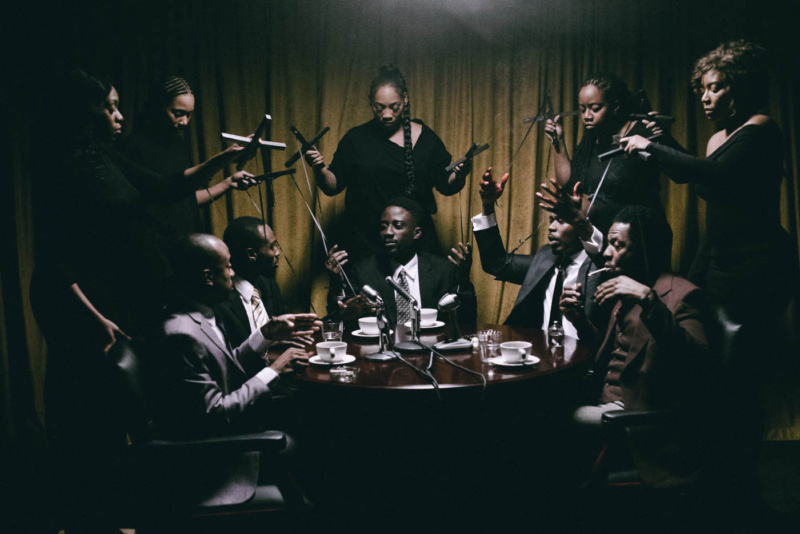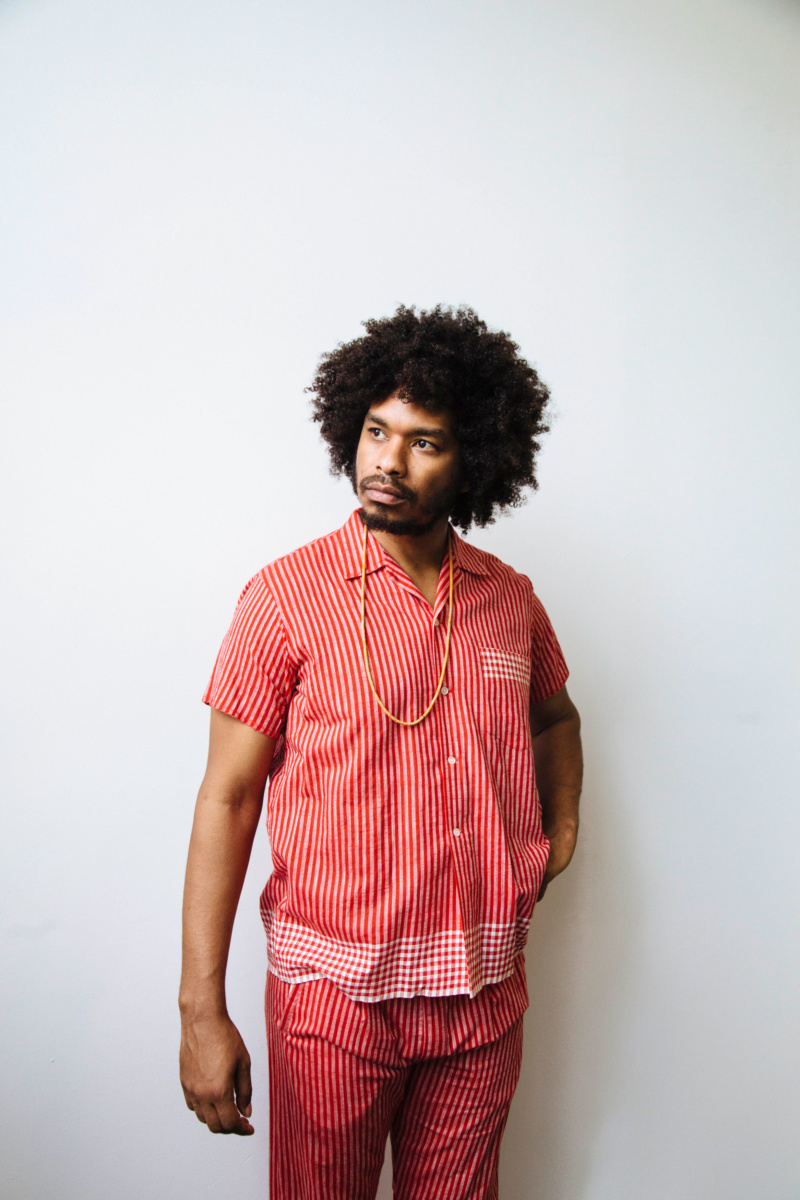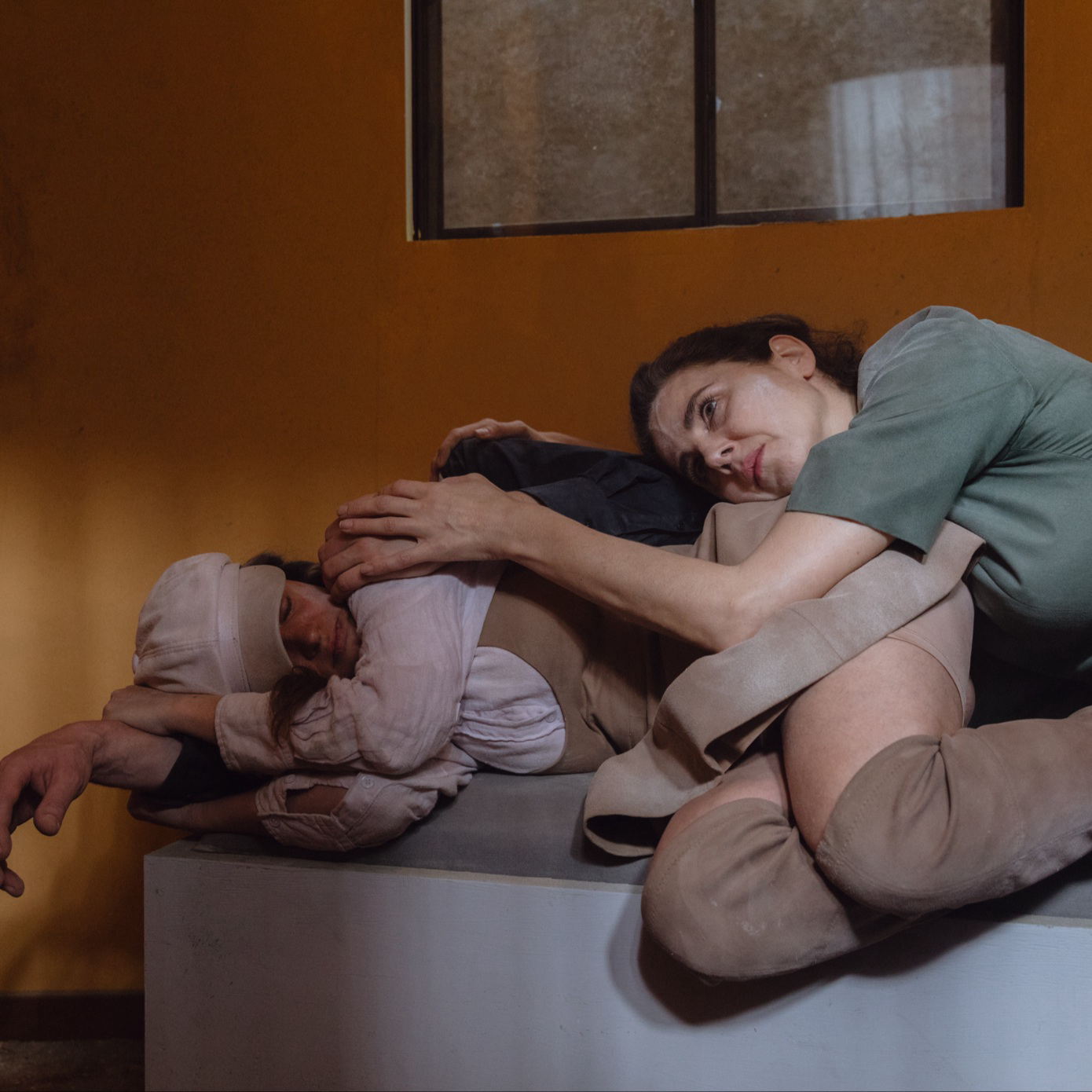
When I was young and difficult, someone told me that the neurological network that processes humor and the one that processes distress are close to each other in the brain—an imprecise electric crossroad. As pseudoscientific as that statement felt, it was useful: my response to admonishment—loud laughter and internal shame—was biologically permissible.
In the first episode of Terence Nance’s acclaimed HBO late-night variety show Random Acts of Flyness—confirmed in August for a second season—there’s a segment called “Everybody Dies!” directed by Nuotama Frances Bodomo. It’s a dystopian children’s program in which Ripa the (Grim) Reaper despairingly ushers black children to their deaths. She grows despondent, screams for help. The episode screened in August at Art Africa, a gallery in Overtown, Miami; it was the second time I’d seen it that week, and when Ripa appeared, a woman in the audience guffawed—indefatigable, tear-soaked laughter. Every implied murder, every pained reference to the disproportionate deaths of black children: hysterics. “I’m sorry,” she said, gasping. “It’s so funny.”

I tell Nance about it later. “I understood ‘Everybody Dies!’ to be one step in a process of grief,” he says. His tone is low but bright, and his pacing calm an unaffected luminosity, even if he’s tired. (He has just completed a photoshoot; I imagine this is his third interview of the week.) “Sometimes, after you’re angry, you’re in a state of despair. That can turn into absurdity, then delirium. Ripa then goes in reverse: despair, anger, resignation. That’s a linear experience, but those emotional tonalities are always happening at the same time. They’re going on in me, whether or not I’m expressing that when the police shoot a kid for having a toy gun, your immediate response might be to laugh. Within these emotions is the absurdity of it all: laughter that validates despair, and the desire to change things.”

Random Acts of Flyness isn’t linear either, but a collaborative project with directors and artists like Bodomo, Jamund Washington, Naima Ramos-Chapman, Shaka King and others, all friends of Nance—many of whom he’s met through his practice, through art-making, through each other. “It’s a committed, emotionally vulnerable and highly skilled team of artists,” he says, and he values “the energy of other people’s experiences—that’s what makes the show fractal and interconnected to a diverse set of experiences.” Nance cares about his friends, is nourished and charged by them. Even if writing necessitates a kind of solitude, he seems a workaholic only to the extent that his work involves his people. “It’s hard to have any joy about a piece of work as it’s in process, sometimes,” he admits. His voice peaks here, gratitude audible. “The main way to get to the joyfulness is letting go of the expectations or desires you have about what it’s going to be. That’s usually possible when you have the right people around you, who are going to constantly question whatever expectations you have for it.”

Ramos-Chapman, a director, writer and editor—and Nance’s partner—has made major contributions to the show, as has the entire team. Her short film, And Nothing Happened (2016), finds thematic resonance in “Nuncaland,” a musical she directed for episode two where masculinity is a kind of accidental poison—the way it festers, the burden borne only by women. Nance, she says, was essential to the piece. “He has supported my past work and knows I’m interested in discussing these themes: alienation, power and privilege, sexualized violence.” She echoes his assertion that the show has a rippling texture, buzzing with the energy of many hands. “There was a natural inclination to dismantle the idea that Terence’s ideas were more important,” she tells me. “Everyone is a visionary or makes work on their own terms—the different, complicated ways of how we process the world make for a layered, textured thing.”
In 2013, when Nance met the sculptor and performance artist Doreen Garner, he told her, rather immediately, “Your voice would sound good as a cartoon voice-over,” she recalls. She plays Nance’s co-host on episode one’s “Sexual Proclivities of the Black Community” and, incidentally, does voice-overs throughout the season, including one in an animation about Michelle Obama as god. Garner sounds like a calm sea, slow and a little undulating, and her voice would lend itself well to any colloquy of divinity. “Terence is super open-minded,” she adds, “and open to collaboration, allowing other people to put their own special spin on things.” In the season finale, artist Diamond Stingily plays Nina Rodriguez, who “uploads her brain because she wants to work even if her body isn’t physically there,” she tells me. “It wasn’t hard to play Nina because I’ve been in that position. A lot of people cannot stop working regardless of their circumstances. The world doesn’t stop for anyone.” Random Acts of Flyness pulls from the experiential well, then peregrinates between short films, animations, interviews and musicals, interjected with error messages or sudden ballads in every interstice; it’s poetry, quick and emphatic, about the dense, barbarous landscape of American life.

It was disquieting to watch the first episode of Random Acts of Flyness again, devoid this time of surprise. I already knew its abstraction was encoding something concrete—that a segment of Nance floating in the clouds, high above a group of angry cops, was poignant and funny because I wished Tamir Rice, the black 12-year-old killed by police for holding a fake gun, had real wings. Performers break character and question themselves; special guests discuss their loves and miseries, and the monologues are transformed into spacious performances, sometimes cartoons. The show is repeatedly described as “surreal,” but that’s inaccurate. Maybe “hyper-real” is better. Maybe it’s not kaleidoscopic but microscopic, life sharpened, still filled with abject pain and a bit more beautiful. “The Afrosurreal Manifesto says that surrealism, as expressed by black people, is a way of describing our identity naturalistically,” Nance explains. “It’s not an attempt to be weird, abstract, obtuse. That’s not necessarily just a black thing, either. Everyone has a physical experience of their body and a metaphysical experience of being non-embodied, whether they meditate or go to church to get to it.”

Nance grew up in Dallas, Texas, the son of an actress and a musician/photographer. As a child, he “knew but didn’t know” about the art forms with which his parents engaged, intuiting their processes unconsciously. His 2012 film An Oversimplification of Her Beauty is as much a collaged gyroscope between fiction and reality as Random Acts of Flyness, the real-life her in question—actress and friend Namik Minter—contributing to its story like a duet. It’s regularly cited as a stylistic predecessor to the show. But Random Acts of Flyness was in the works as early as 2006. At the time Nance called it Random, but the idea, he says, was nearly “exactly the same as it is now.” When Nance was commissioned by Time Warner’s storytelling incubator, 150, Random was his “most fully developed episodic idea.” Encouraged by 150’s Tamir Muhammad, Nance’s pilot was picked up by HBO. “I do think it’s important to have a community of people with whom you have a way of being that feels settled, mutually sustainable,” he adds. “That’ll find its way into the work.”
Nance will soon direct Space Jam 2, produced by Ryan Coogler and starring LeBron James, which he describes as “a unique opportunity to create a totally new aesthetic that defines our present.” (Of course.) Like all folks perpetually, wildly in motion, Nance is often beset by worry, which he quiets with meditation. What else? “I try to rest, read, write. I try to not be alone, to have hyper-presence, to engage as consistently as I can with my family and the people I love. I think those are the most important things.” Our call was about 30 minutes long, spliced with static, the sounds of traffic, children, music. There was a few-second delay, stretching the conversation into an echo. Still, I heard Nance, his voice bright as a vesper.



